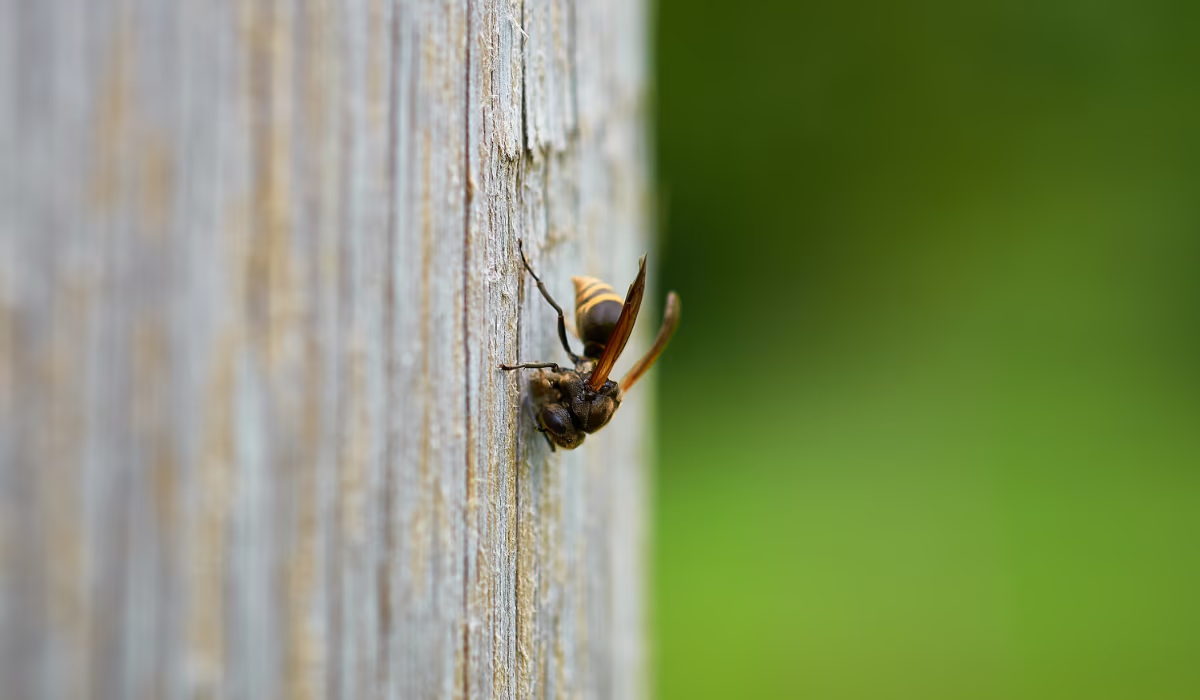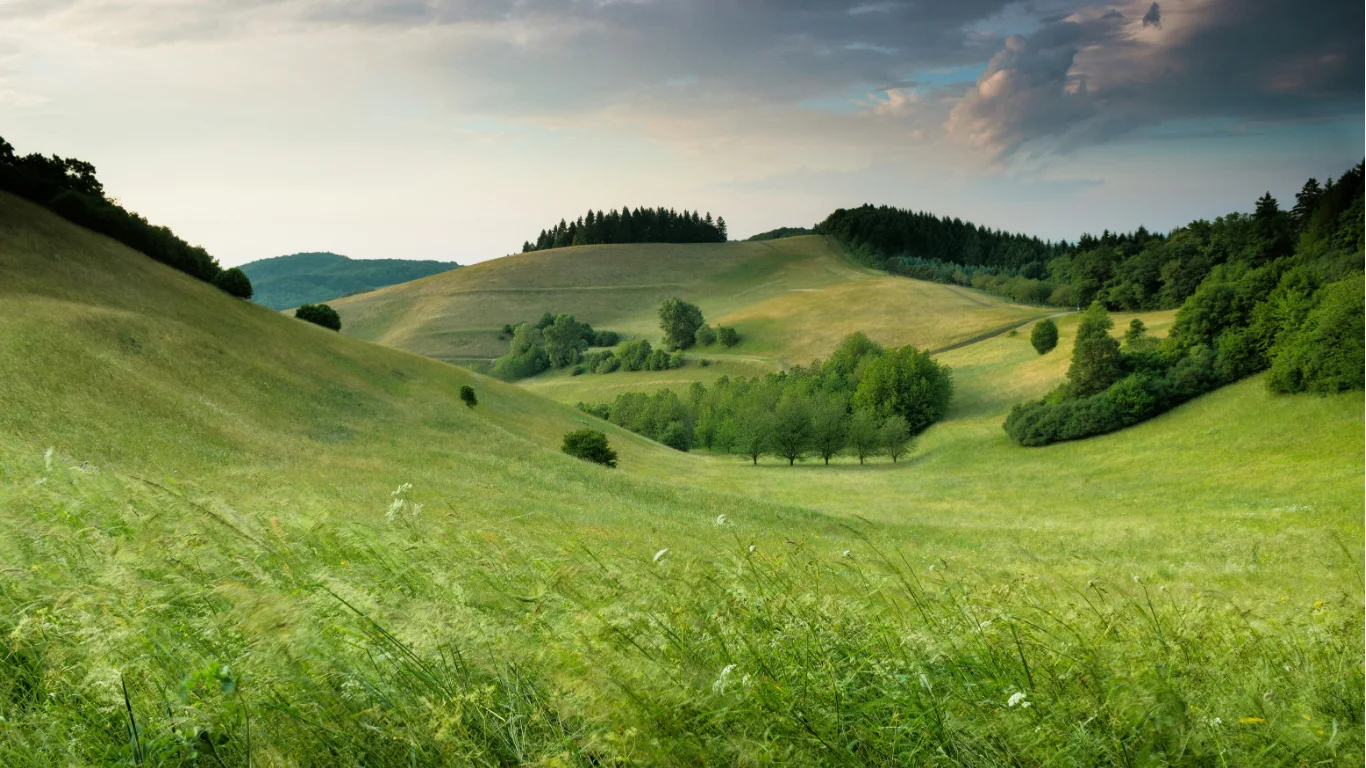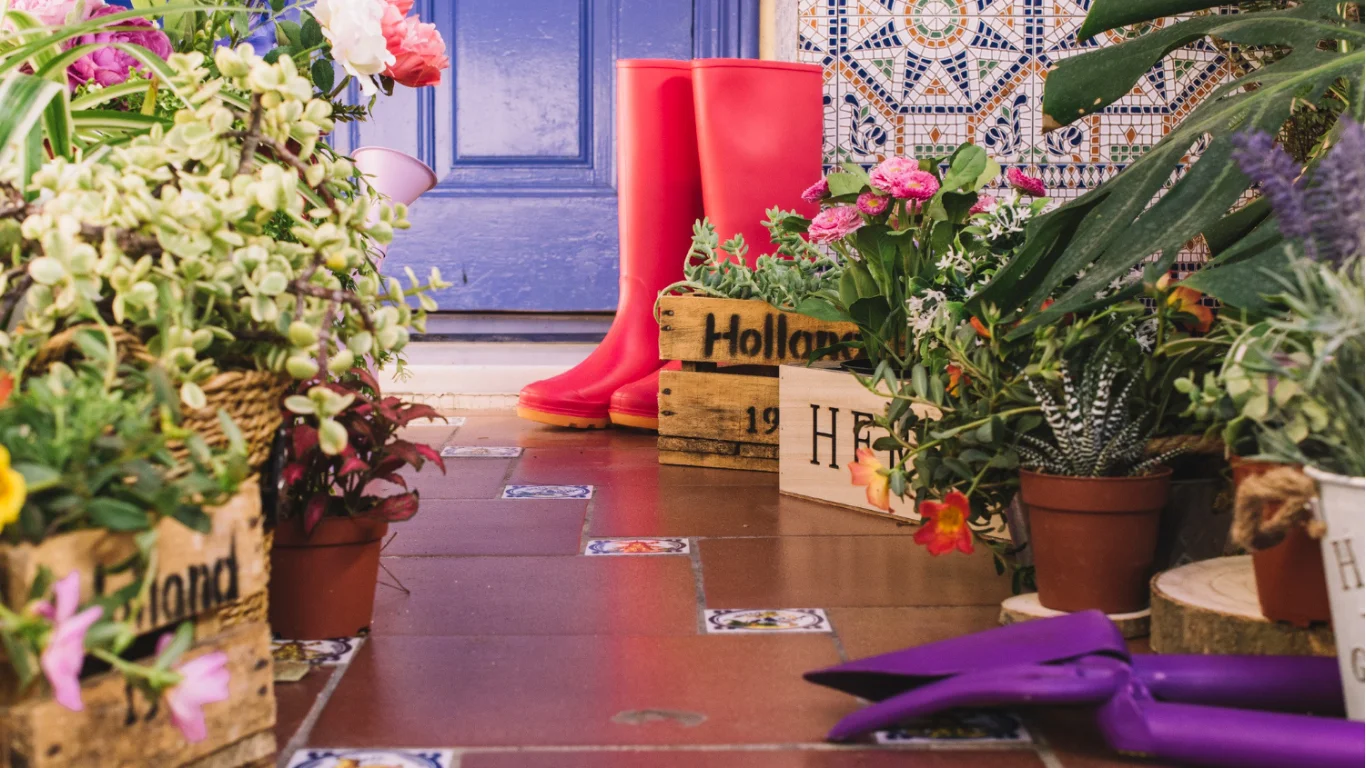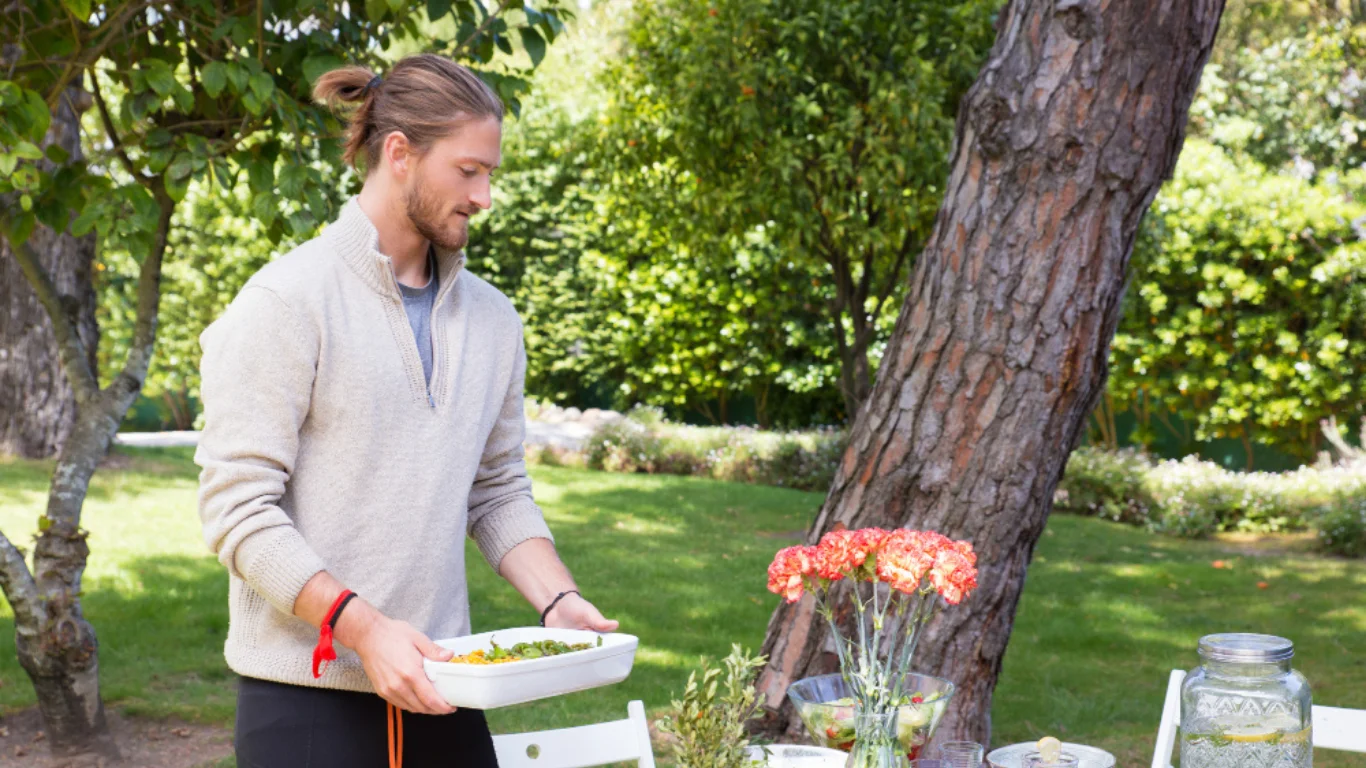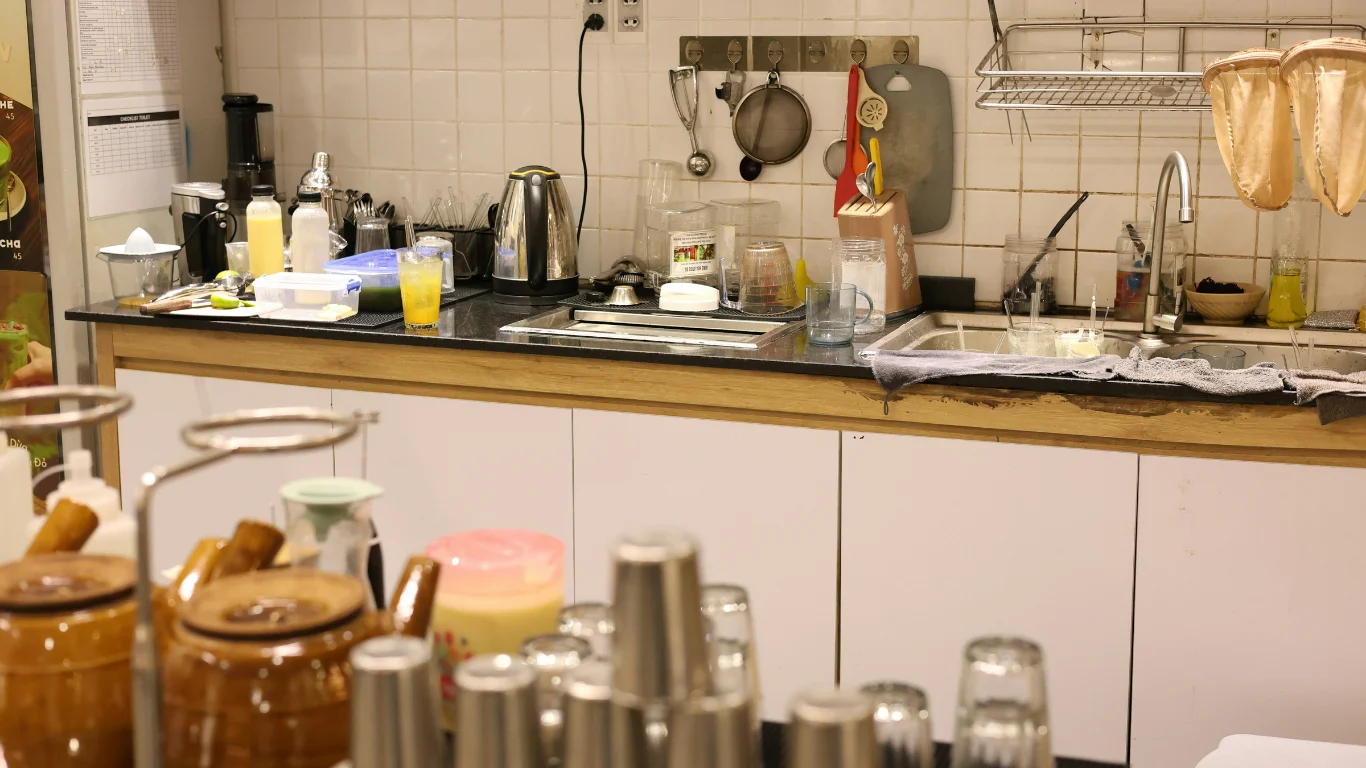In hot weather, wasps often visit pools seeking water. In many cases they use the pool as a water source to cool down or supply moisture to their nests. The scents of sweet drinks, fruits, sunscreen, and even cleaning chemicals like chlorine can also attract them. Once they start frequenting the pool, the problem compounds as they mark trails and return repeatedly.
Provide an Alternative Water Source Away from the Pool
One of the most effective strategies is giving wasps a better water option elsewhere. A shallow dish or birdbath placed far from the pool, with pebbles or a small platform for landing, can draw them away. Because the alternative is closer and easier to reach, many will stop trying to drink from the pool. Setting this up before wasps become established is even more helpful.
Use Decoy Nests & Disrupt Their Patterns
Wasps tend to avoid building nests close to existing ones. Hanging a fake wasp nest near the pool area can discourage them from setting up nearby. Placing the decoy early in the season works better. Also, regularly moving poolside furniture or changing the layout can confuse their normal flight paths—wasps often rely on consistent routes, so disrupting their “memory map” makes the area less attractive.
Traps, Scents & Natural Deterrents
You can use traps or scents that wasps dislike:
- Create a bottle trap using a plastic bottle, invert the top funnel portion, add sweet bait (sugar water, syrup) and a light film of grease to make escape harder. Place the trap away from the pool so wasps go there instead of your swimming area.
- Use strong scents they avoid—lemon halves with cloves, essential oils like peppermint or citrus, or plants like mint, lavender, or lemongrass—these scents can mask attractive smells or repel wasps from certain zones.
- A diluted soap spray (dish soap + water) can deter or remove wasps that land, though it’s more of a short-term fix than long-term prevention.
Pool Maintenance & Environmental Adjustments
Some changes around the pool itself help:
- Keep the area clean: avoid leaving out sweet drinks, fruit peels, meat scraps, or food that draws wasps.
- Use a pool cover when the pool isn’t in use to deny them easy access to water.
- Adding water movement, such as small fountains or jets, reduces still surfaces—many wasps avoid landing on moving water.
- Position fans around poolside seating: air movement makes it harder for flying insects like wasps to hover or navigate stably.
When to Call a Professional
If you find a nest near or under your property, or wasp presence is dangerously high—especially if someone has allergies—come to a professional pest control service. Removing nests improperly can provoke aggressive behavior. A professional can eliminate or relocate nests safely, reducing risk to you and your household.
Conclusion
Wasps frequent pools because they need water and are drawn by scents and exposed surfaces. But you can reduce their attraction by offering them alternatives, using decoys, deploying deterrent scents and traps, maintaining a clean environment, and using pool covers or fans. For serious infestations or nearby nests, it’s best to bring in a professional. With consistent effort, your pool area can stay more peaceful and wasp-free.
FAQs
Will traps completely solve wasp problems around a pool?
Traps help reduce numbers but rarely eliminate all wasps. They work best combined with other strategies like alternative water sources and deterrents.
Do fake wasp nests really work?
They can discourage wasps from nesting nearby because wasps tend to avoid areas where they detect an existing nest’s presence.
Can I use essential oils in the pool to repel wasps?
It’s better to use them around the pool edge or in potted plants. Putting oils in the water can affect pool chemistry and may not be safe depending on your system.
Does a pool cover actually deter wasps?
Yes. When the water is covered, wasps can’t access the surface, making the pool less attractive as a water source.
Are wasps useful or harmful?
Wasps do help by eating other pests and serving ecological roles, but when they frequent active human areas (like pools), they become hazards due to stings—especially for allergic individuals.

